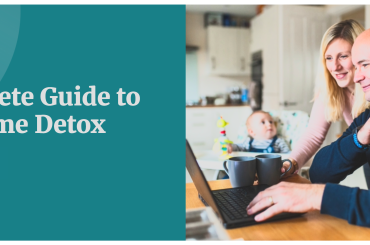Harm Reduction and the Stigma Within 12-Step Fellowships
by Cristina Cavallo MCAP, ICADC, HRS

Harm reduction is a public health approach that prioritizes the well-being of individuals who use substances, aiming to minimize the negative consequences of drug use rather than insisting on immediate abstinence. This includes strategies like needle exchange programs, supervised consumption sites, and the distribution of naloxone (Narcan) to prevent overdose deaths. Despite its proven effectiveness in saving lives and supporting individuals on their recovery journey, harm reduction remains controversial, particularly within some 12-step fellowships.
The Abstinence-Only Mentality
Traditional 12-step fellowships, such as Alcoholics Anonymous (AA) and Narcotics Anonymous (NA), are rooted in an abstinence-based philosophy. The first step of these programs acknowledges ‘powerlessness’ over substances, emphasizing total sobriety as the path to recovery. For many within these fellowships, any use of substances, whether prescribed medication for opioid use disorder (MOUD) like methadone or buprenorphine or safer-use strategies like moderation, can be seen as not sober.
This perspective creates a divide between harm reduction principles and 12-step ideology. Individuals utilizing harm reduction methods may feel judged or unwelcome in meetings, leading some to abandon support groups altogether. The rigid interpretation of sobriety in many 12-step circles contributes to stigma, discouraging those who do not fit the mold of complete abstinence from seeking community-based recovery support.
Medication for Opioid Use Disorder (MOUD) and Fellowship Rejection
One of the most prominent areas of conflict is the use of medications like methadone, buprenorphine, and naltrexone, which medical professionals endorse as evidence-based treatment for opioid use disorder. These medications reduce cravings, prevent withdrawal, and lower overdose risk, yet many 12-step meetings still refuse to recognize individuals on MOUD as being “Clean or Sober.”
In some meetings, individuals on MOUD are discouraged from sharing their experiences or even told they cannot hold service positions. This exclusion sends a harmful message: that those utilizing life-saving medications are somehow less deserving of recovery support. It forces people to choose between their prescribed treatment and their recovery community, a decision that can have serious consequences.
Harm Reduction Saves Lives Judgment Does Not
The reality is that harm reduction and abstinence-based recovery do not have to be in opposition. Many individuals who engage with harm reduction eventually pursue abstinence on their terms, while others find stability and improved quality of life through safer use strategies. Dismissing harm reduction as a path to recovery ignores the complexities of addiction and the diverse needs of people who use drugs.
The stigma against harm reduction in 12-step fellowships can be profoundly isolating, especially for individuals who have experienced overdose, homelessness, or incarceration. Instead of gatekeeping what recovery looks like, fellowships could benefit from embracing a broader perspective that includes harm reduction as a valid and life-affirming approach.
Moving Toward a More Inclusive Recovery Community
For 12-step fellowships to truly embody their core principle of helping the still-suffering addict, they must recognize that recovery is not one-size-fits-all. A more inclusive approach would:
- Acknowledge that harm reduction is a legitimate and compassionate form of recovery support
- Create space for individuals on MOUD without labeling them as Clean and Sober
- Educate fellowship members on the science behind harm reduction and its role in preventing overdose deaths
- Encourage open-minded discussions that respect different recovery journeys
Recovery is about progress, not perfection. The sooner 12-step fellowships move away from harmful stigma and toward inclusivity, the more lives they can truly help.
Cristina Cavallo MCAP, ICADC, HRS
President-CEO
www.ComprehensiveRecoverySolutions.com
www.RobinFoundation.org








1 Comment
First time using in the rooms. I stopped going to meetings because of the stigma of MAT. I appreciate this article